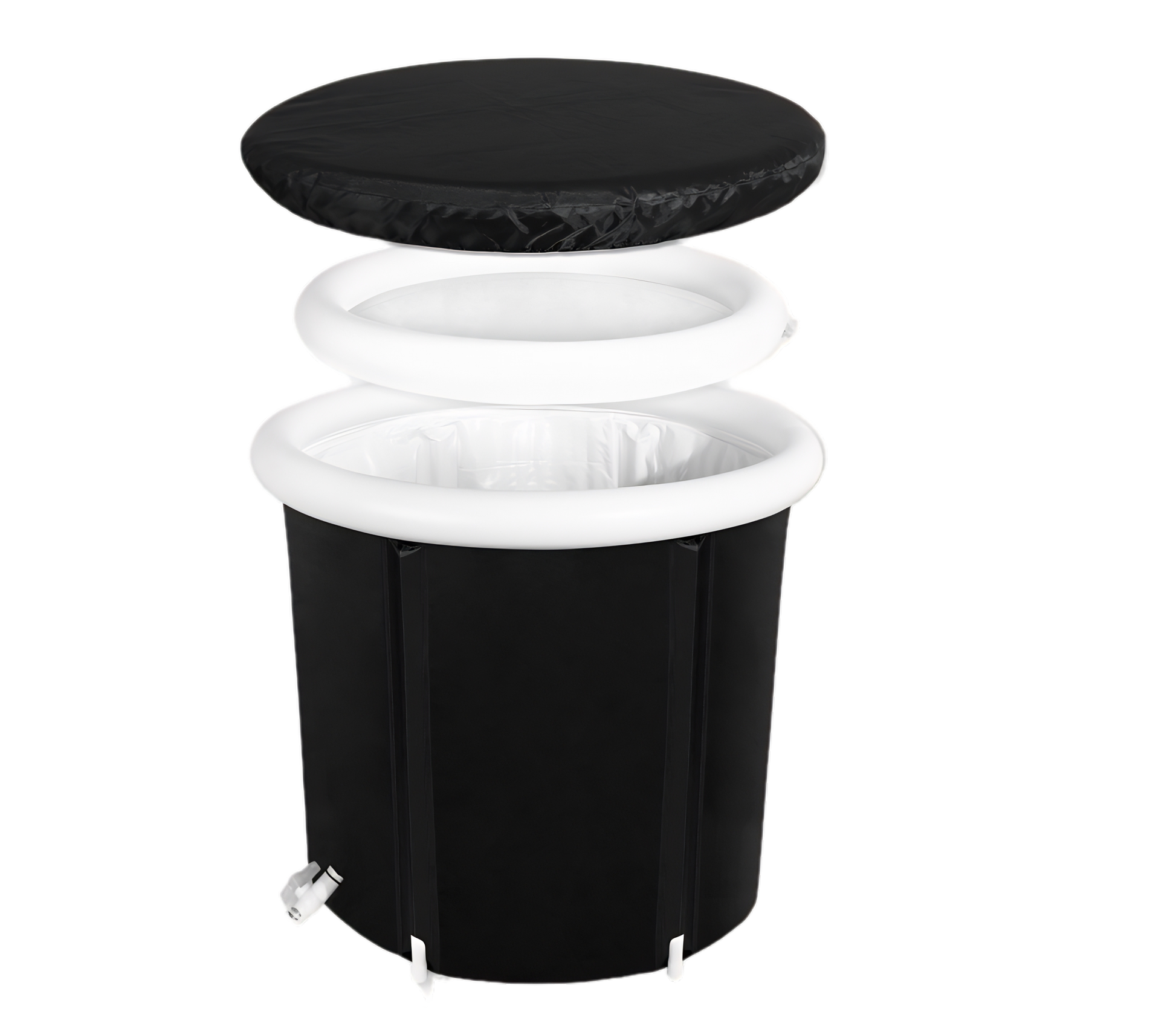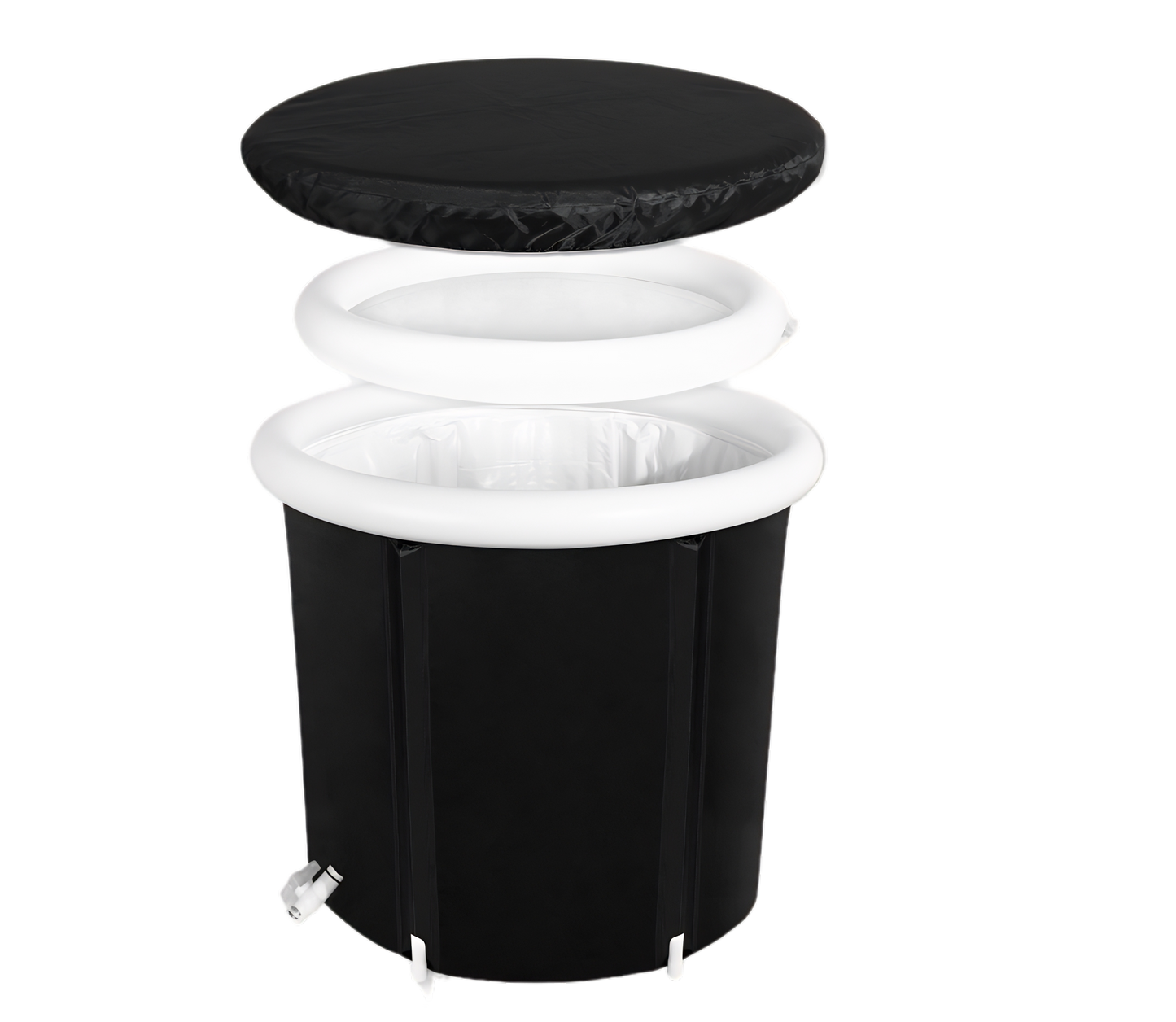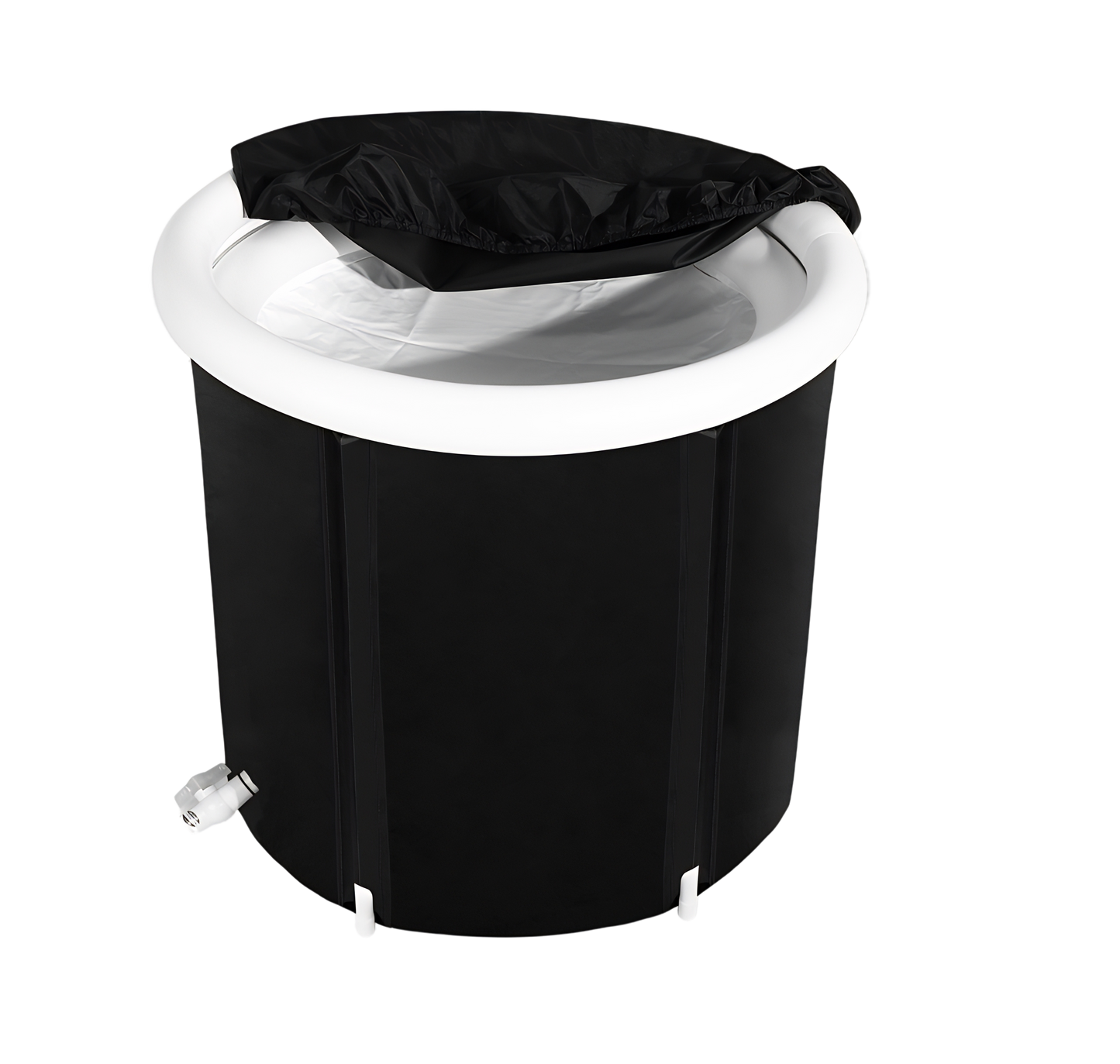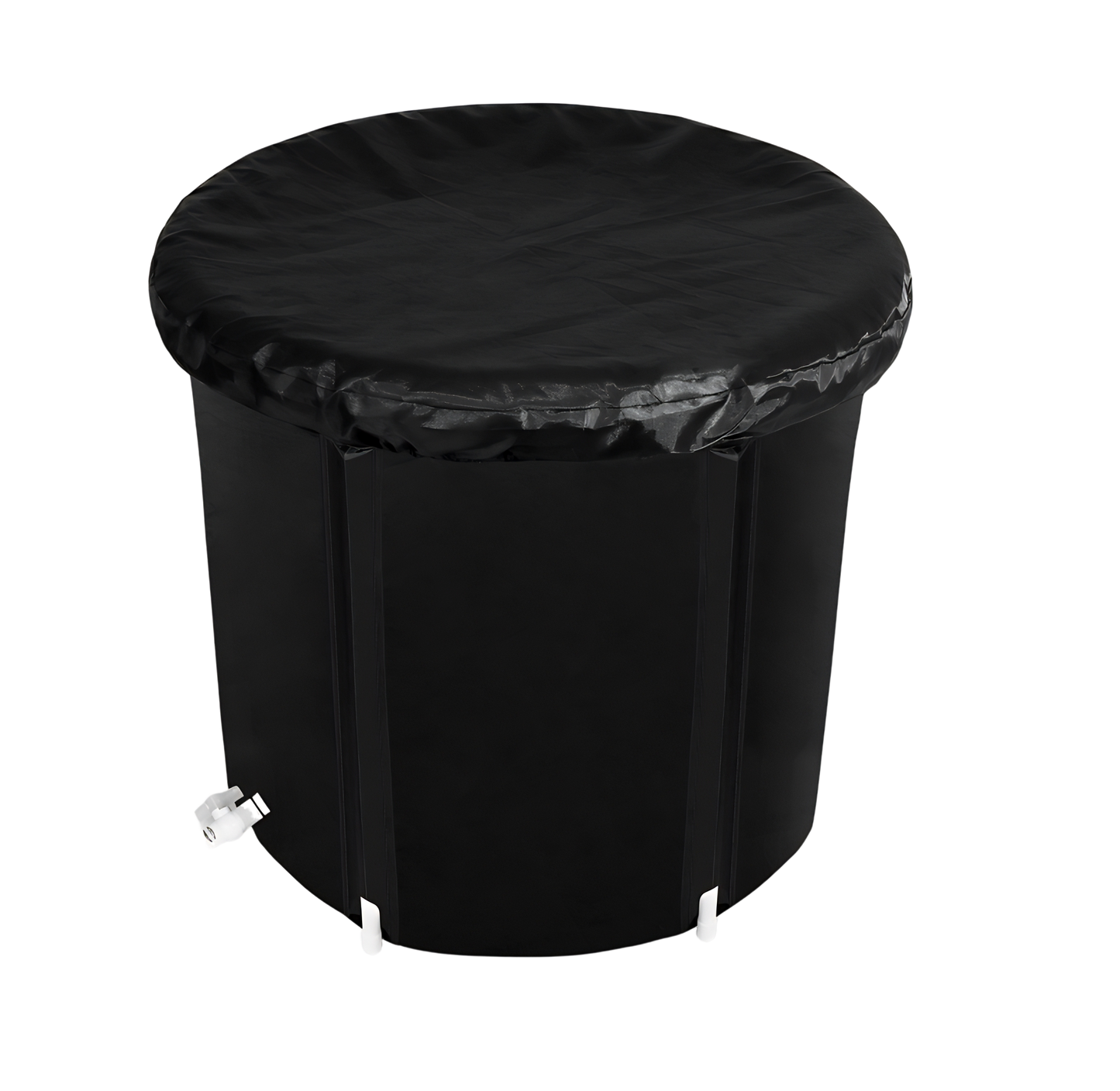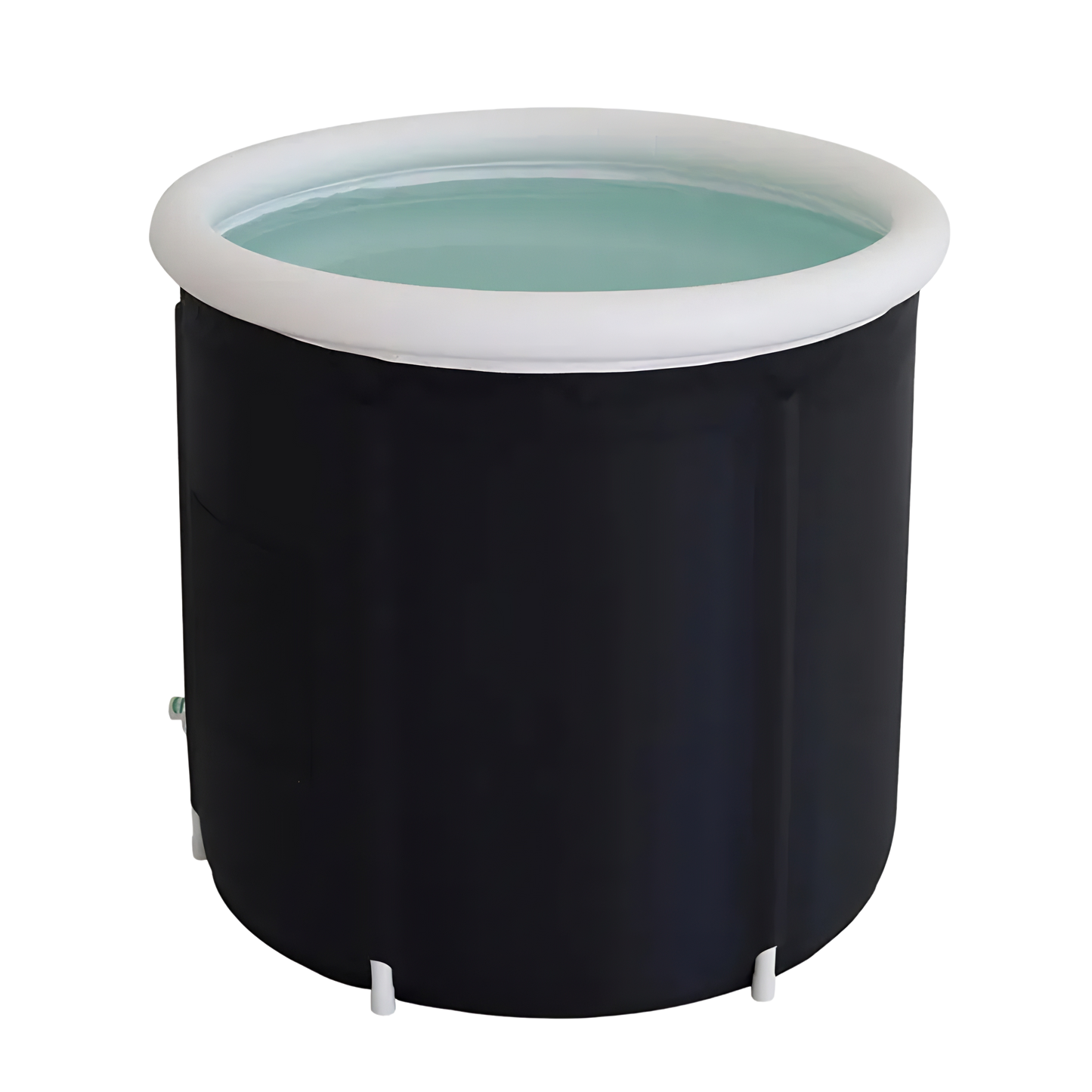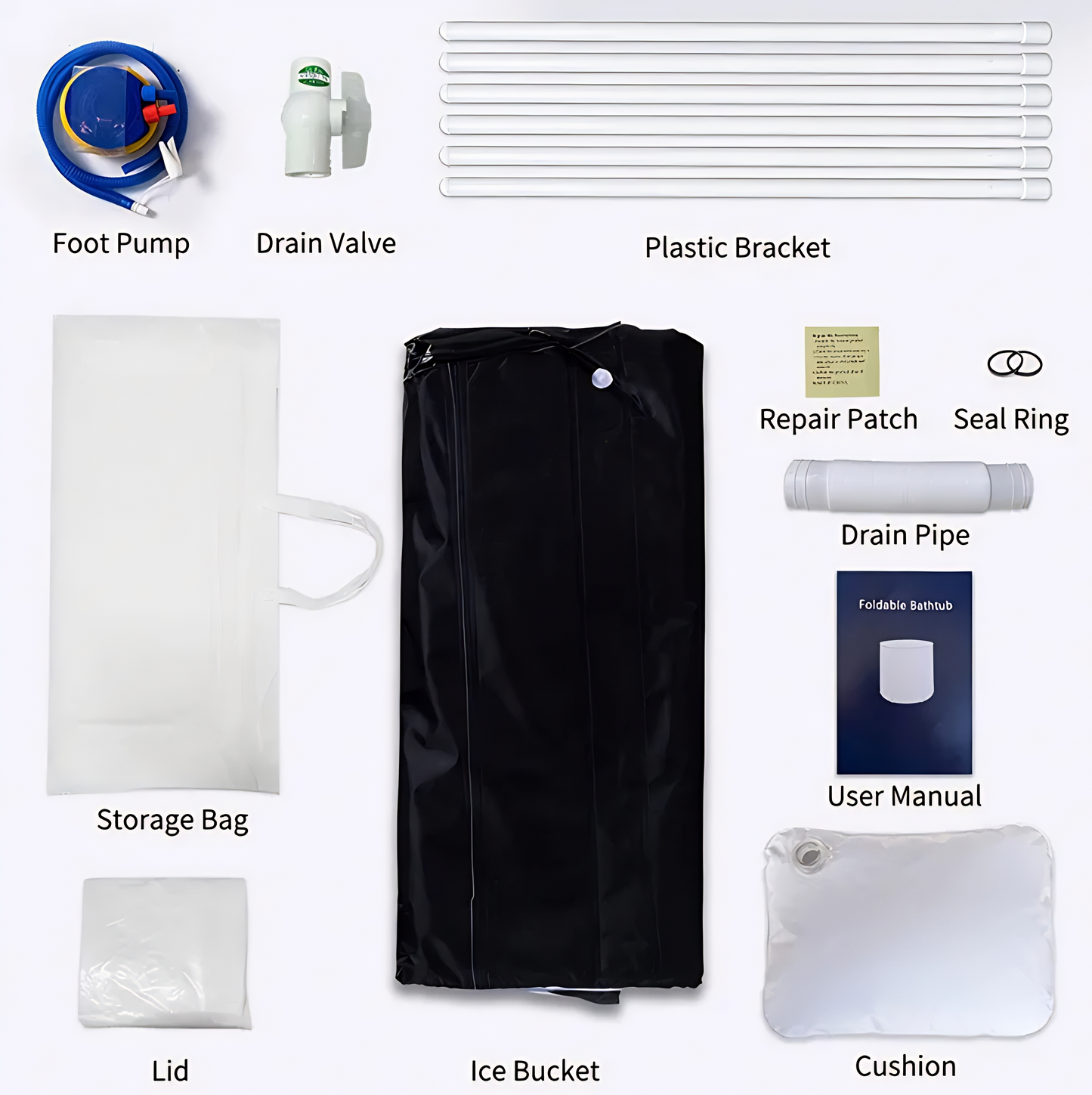When it comes to muscle recovery and rejuvenation, ice baths have become a popular therapy among elite athletes and fitness enthusiasts alike. The benefits of these cold plunges go beyond just soothing sore muscles - they offer a unique approach to promoting overall well-being.
Ice baths, also known as cold therapy or cryotherapy, involve immersing the body in cold water or ice for a short period of time. This drastic drop in temperature triggers a series of physiological responses that can aid in muscle recovery and enhance physical performance.
One of the primary benefits of ice baths is their ability to reduce muscle pain and soreness after intense exercise. The cold temperature constricts blood vessels and reduces inflammation, helping to remove metabolic waste and promote faster recovery.
Scientific studies have shown that ice baths can alleviate delayed onset muscle soreness (DOMS) and enhance muscle power recovery within 24 hours. Whether you're a professional athlete or a weekend warrior, incorporating ice baths into your recovery routine can help you bounce back faster and achieve your fitness goals.
Key Takeaways:
- Ice baths aid in muscle recovery and reduce pain and discomfort.
- Cold therapy promotes efficient blood flow and oxygenation, supporting cardiovascular health.
- Ice baths have a positive impact on mental well-being, reducing anxiety and stress.
- Scientific research has shown the effectiveness of ice baths in improving endurance performance and immune response.
- Ice baths can be incorporated into the routine of athletes and individuals at all fitness levels.
How Ice Baths Support Cardiovascular Recovery
Ice baths not only aid in muscle recovery but also have a positive impact on cardiovascular health. Cold water immersion can improve heart rate variability and accelerate the return to baseline heart rate after intense exercise. It promotes efficient blood flow and oxygenation, which strengthens the cardiovascular system and supports overall recovery. Cold water therapy offers a natural and invigorating method to enhance heart health and promote cardiovascular well-being.
Research has shown that ice bath therapy can enhance heart rate variability, which is a measure of the autonomic nervous system's ability to adapt to stress. By exposing the body to cold temperatures, ice baths stimulate the sympathetic and parasympathetic systems, helping to balance and regulate heart rate. This promotes cardiovascular resilience and improves the body's ability to recover from intense physical exertion.
When immersed in cold water, blood vessels constrict, which increases blood pressure and improves circulation. This effect enhances the body's ability to deliver oxygen and nutrients to the muscles, supporting their recovery and reducing inflammation. Additionally, cold water immersion may stimulate the release of endorphins, natural painkillers that can help reduce muscle soreness and improve overall well-being.

Furthermore, ice baths can help lower resting heart rate, improve heart rate recovery, and enhance heart rate variability. These physiological changes indicate a stronger and healthier cardiovascular system, which can lead to improved athletic performance and reduced risk of cardiovascular diseases. Incorporating ice baths into a regular post-exercise routine can provide significant benefits for both the body and the heart.
The Effects of Ice Baths on Heart Rate Variability
A study conducted by Liu et al. (2020) investigated the effects of ice baths on heart rate variability in elite athletes. The results showed that participants who underwent a 15-minute ice bath experienced a significant increase in heart rate variability compared to those in the control group. This suggests that ice baths stimulate the autonomic nervous system, leading to improved cardiovascular function.
| Control Group | Ice Bath Group | |
|---|---|---|
| Resting Heart Rate (bpm) | 75 | 70 |
| Heart Rate Recovery (bpm) | 25 | 30 |
| Heart Rate Variability (ms) | 50 | 75 |
"The results of our study indicate that ice baths can have a positive impact on heart rate variability, which is an important marker of cardiovascular health. Incorporating ice baths into post-exercise recovery routines may contribute to improved athletic performance and overall well-being." - Dr. Xiu Wei, Lead Researcher
In conclusion, ice baths not only support muscle recovery but also have significant benefits for cardiovascular health. By improving heart rate variability, promoting efficient blood flow, and reducing inflammation, ice baths can enhance the body's ability to recover from intense exercise and improve overall heart health. Incorporating ice baths into a regular post-exercise routine can lead to remarkable transformations in both physical performance and cardiovascular well-being.
Ice Baths for Pain Reduction and Mental Well-being

In addition to pain reduction, ice baths also have a positive impact on mental well-being. The invigorating sensation of immersing oneself in cold water increases energy levels and improves mood. Studies have shown that cold-water immersion can enhance brain function and reduce anxiety and stress. This makes ice baths a powerful tool for not only physical recovery but also mental clarity and relaxation.
"Ice baths provide a unique way to reset both the body and the mind. The cold temperature stimulates the release of endorphins, which are natural painkillers and mood boosters. After an ice bath, I feel refreshed and recharged, ready to take on new challenges."
Embracing ice baths as part of a regular fitness routine can lead to remarkable transformations in both physical and mental health. The pain reduction benefits combined with the mental clarity achieved through cold-water immersion offer a holistic approach to overall well-being. Whether you're an athlete looking to recover faster or simply seeking a natural stress relief method, ice baths provide a refreshing and invigorating solution.
Conclusion
Ice baths offer a wide range of benefits for muscle rejuvenation and overall well-being. By reducing muscle pain and soreness, ice baths aid in muscle recovery and promote faster healing. The cold temperature of the water constricts blood vessels and reduces inflammation, resulting in decreased swelling and reduced muscle fatigue.
Moreover, ice baths have a positive impact on cardiovascular health. Cold water immersion improves heart rate variability and promotes efficient blood flow, strengthening the cardiovascular system. This not only supports recovery after intense exercise but also enhances overall heart health.
In addition to physical benefits, ice baths also contribute to mental well-being. Cold-water immersion has been found to increase energy levels, improve mood, and reduce anxiety and stress. It offers a natural and invigorating approach to pain reduction and mental clarity, leaving individuals feeling refreshed and recharged.
Scientific research has shown the effectiveness of ice baths in reducing muscle soreness, enhancing endurance performance, and improving immune response. Athletes and individuals of all fitness levels can benefit from ice baths to enhance their physical and mental health. Embracing the power of ice baths can lead to remarkable transformations in both the body and mind, making it a valuable tool for overall well-being.
FAQ
How do ice baths aid in muscle recovery?
Ice baths work by constricting blood vessels and reducing inflammation, which helps to remove metabolic waste and promote muscle recovery.
Can ice baths reduce muscle pain and soreness?
Yes, studies have shown that ice baths can alleviate delayed onset muscle soreness (DOMS) and enhance muscle power recovery within 24 hours.
What are the benefits of ice baths for cardiovascular health?
Cold water immersion can improve heart rate variability and accelerate the return to baseline heart rate after intense exercise. It promotes efficient blood flow and oxygenation, which strengthens the cardiovascular system and supports overall recovery.
How do ice baths help with pain reduction and mental well-being?
The cold temperature of ice baths helps to constrict blood vessels and reduce inflammation, providing relief and soothing sore muscles. Cold-water immersion also increases energy levels, improves mood and brain function, and reduces anxiety and stress.
What are the overall benefits of ice baths for muscle rejuvenation and well-being?
Ice baths aid in muscle recovery, reduce pain and discomfort, support cardiovascular health, and promote mental well-being. They have been scientifically proven to reduce muscle soreness, enhance endurance performance, and improve immune response.

